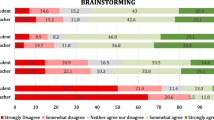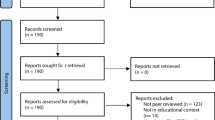Abstract
The present study focuses on the use of five spoken discourse markers, namely so, like, you know, I mean and well, by Turkish and British university students. Previous research shows that non-native speakers generally differ from native speakers in their use of discourse markers. However, the literature on Turkish EFL learners has been limited, and mostly restricted to planned and monologic speech. This gap was addressed in a quantitative and qualitative analysis of a Turkish learner corpus and the Louvain Corpus of Native English Conversation, both containing informal interviews. The Turkish students significantly underused four out of the five discourse markers examined. They used these items in functions that serve mostly at the textual domain, while the British students made use of a higher proportion of interpersonal and interactional functions. Individual functions of these discourse markers were discussed, and supported with direct quotations from the data.

Similar content being viewed by others
References
Aijmer, K. (2002). English discourse particles: Evidence from a corpus. Amsterdam: John Benjamins Publishing.
Aijmer, K., & Simon-Vandenbergen, A. M. (2011). Pragmatic markers. In J. Zienkowski, J. Östman, & J. Verschueren (Eds.), Discursive Pragmatics (pp. 223–247). Philadelphia: John Benjamins.
Aşık, A., & Cephe, P. T. (2013). Discourse markers and spoken English: Nonnative use in the Turkish EFL setting. English Language Teaching, 6(12), 144–155.
Brinton, L. J. (1996). Pragmatic markers in English: Grammaticalization and discourse functions. Berlin: Mouton de Gruyter.
Buysse, L. (2010). Discourse markers in the English of Flemish university students. In I. Witzcak-Plisiecka (Ed.), Pragmatic perspectives on language and linguistics, Vol. 1: Speech actions in theory and applied studies (pp. 461–484). Newcastle upon Tyne: Cambridge Scholars Publishing.
Buysse, L. (2012). So as a multifunctional discourse marker in native and learner speech. Journal of Pragmatics, 44(13), 1764–1782.
Buysse, L. (2015). ‘Well it’s not very ideal…’ The pragmatic marker well in learner English. Intercultural Pragmatics, 12(1), 59–89.
Buysse, L. (2017). The pragmatic marker you know in learner Englishes. Journal of Pragmatics, 121, 40–57.
De Cock, S. (2004). Preferred sequences of words in NS and NNS speech. Belgian Journal of English Language and Literature (BELL), 2, 225–246.
Fox Tree, J. E., & Schrock, J. C. (2002). Basic meanings of you know and I mean. Journal of Pragmatics, 34(6), 727–747.
Fung, L., & Carter, R. (2007). Discourse markers and spoken English: Native and learner use in pedagogic settings. Applied Linguistics, 28(3), 410–439.
Gilquin, G. (2016). Discourse markers in L2 English: From classroom to naturalistic input. In O. Timofeeva, A. C. Gardner, A. Honkapohja, & S. Chevalier (Eds.), New approaches to English linguistics: Building bridges (pp. 213–250). Amsterdam, Philadelphia: John Benjamins.
Hays, P. R. (1992). Discourse markers and L2 acquisition. Papers in Applied Linguistics-Michigan, 7, 24–34.
Hellermann, J., & Vergun, A. (2007). Language which is not taught: The discourse marker use of beginning adult learners of English. Journal of Pragmatics, 39(1), 157–179.
Huang, L. F. (2011). Discourse markers in spoken English: A corpus study of native speakers and Chinese non-native speakers. Unpublished Doctoral Dissertation Unpublished Doctoral Dissertation. Birmingham: University of Birmingham.
Liao, S. (2009). Variation in the use of discourse markers by Chinese teaching assistants in the US. Journal of Pragmatics, 41(7), 1313–1328.
Mei, W. (2012). A Corpus-based comparative study of pragmatic markers: ‘I mean’ and 'you know’ in native and non-native conversation. Unpublished Doctoral Dissertation. Liverpool: University of Liverpool.
Mullan, K. (2010). Expressing opinions in French and Australian English discourse: A semantic and interactional analysis. Amsterdam: John Benjamins.
Müller, S. (2005). Discourse markers in native and non-native English discourse. Amsterdam: John Benjamins.
Nikula, T. (1993). The use of lexical certainty modifiers by non-native (Finnish) and native speakers of English. In I. F. Bouton & Y. Kachru (Eds.), Pragmatics and language learning (Monograph series No. 4) (pp. 126–142). Urbana-Champaign: University of Illinois.
O’Keeffe, A., McCarthy, M., & Carter, R. (2007). From corpus to classroom. Cambridge: Cambridge University Press.
Polat, B. (2011). Investigating acquisition of discourse markers through a developmental learner corpus. Journal of Pragmatics, 43, 3745–3756.
Romero-Trillo, J. (2002). The pragmatic fossilization of discourse markers in non-native speakers of English. Journal of Pragmatics, 34, 769–784.
Sankoff, G., Thibault, P., Nagy, N., Blondeau, H., Fonollosa, M., & Gagnon, L. (1997). Variation in the use of discourse markers in a language contact situation. Language Variation and Change, 9(2), 191–217.
Scott, M. (2011). WordSmith tools version 6. Liverpool: Lexical Analysis Software.
Shimada, K. (2014). Contrastive interlanguage analysis of discourse markers used by non-native and native English speakers. JALT Journal, 36(1), 47.
Tekin, M. (2015). Turkish discourse particles ‘İşte’ and ‘falan’ and their English Equivalents ‘Well’ and ‘Like’: A corpus study. Tarih Okulu Dergisi 435–459.
Yılmaz, E. (1994) Descriptive and Comparative study of the Discourse Markers ‘well’ in English and ‘şey’ in Turkish. Unpublished M.A. Dissertation. University of Essex.
Zorluel Özer, H., & Okan, Z. (2018). Discourse markers in EFL classrooms: A corpus-driven research. Journal of Language and Linguistic Studies, 14(1), 50–66.
Acknowledgements
This paper is based on a Ph.D. dissertation submitted to Anadolu University Graduate School of Educational Sciences, Turkey and funded by Anadolu University Scientific Research Projects Commission under the grant no. 1608E596. A preliminary version was presented at the AAAL 2019 conference held in Atlanta, Georgia, USA on March 9-12, 2019.
Author information
Authors and Affiliations
Corresponding author
Ethics declarations
Conflict of interest
None.
Additional information
Publisher's Note
Springer Nature remains neutral with regard to jurisdictional claims in published maps and institutional affiliations.
Rights and permissions
About this article
Cite this article
Öztürk, Y., Durmuşoğlu Köse, G. “Well (er) You Know …”: Discourse Markers in Native and Non-native Spoken English. Corpus Pragmatics 5, 223–242 (2021). https://doi.org/10.1007/s41701-020-00095-9
Received:
Accepted:
Published:
Issue Date:
DOI: https://doi.org/10.1007/s41701-020-00095-9




